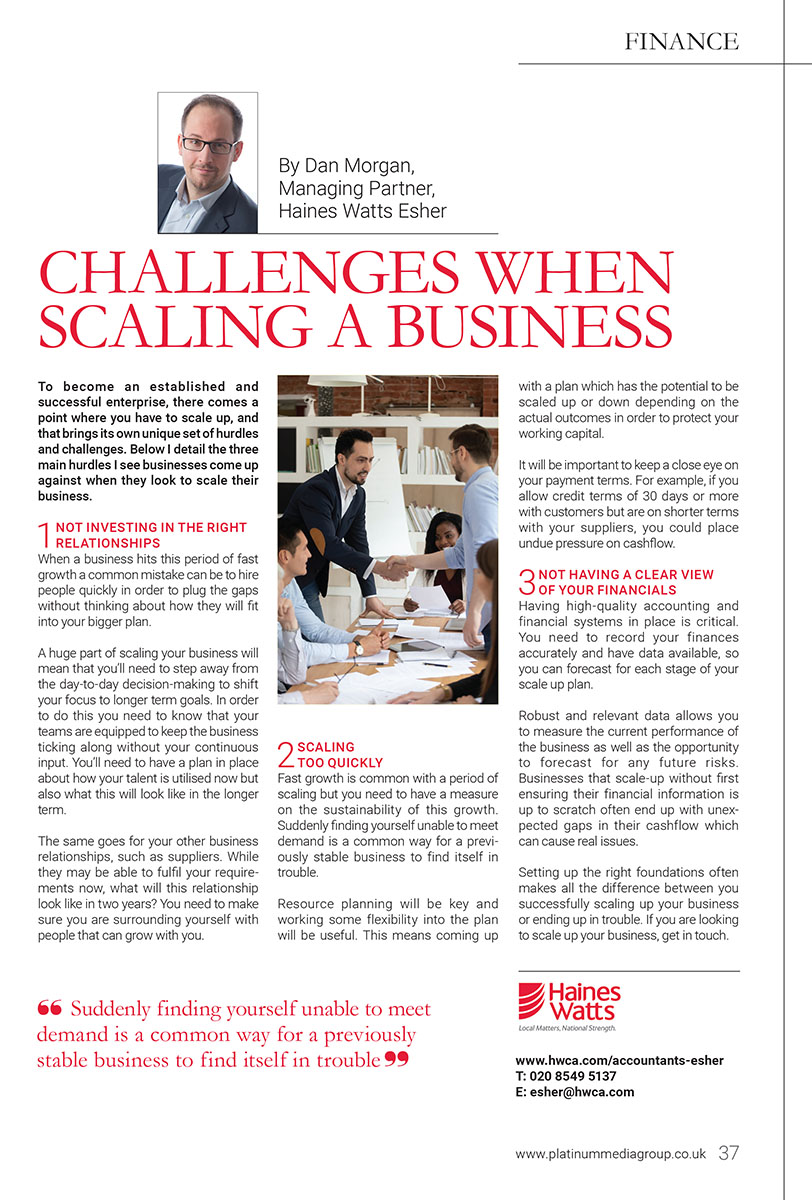
To become an established and successful enterprise, there comes a point where you have to scale up, and that brings its own unique set of hurdles and challenges. Below I detail the three main hurdles I see businesses come up against when they look to scale their business.
1 Not investing in the right relationships
When a business hits this period of fast growth a common mistake can be to hire people quickly in order to plug the gaps without thinking about how they will fit into your bigger plan.
A huge part of scaling your business will mean that you’ll need to step away from the day-to-day decision-making to shift your focus to longer term goals. In order to do this you need to know that your teams are equipped to keep the business ticking along without your continuous input. You’ll need to have a plan in place about how your talent is utilised now but also what this will look like in the longer term.
The same goes for your other business relationships, such as suppliers. While they may be able to fulfil your requirements now, what will this relationship look like in two years? You need to make sure you are surrounding yourself with people that can grow with you.
2 Scaling too quickly
Fast growth is common with a period of scaling but you need to have a measure on the sustainability of this growth. Suddenly finding yourself unable to meet demand is a common way for a previously stable business to find itself in trouble.
Resource planning will be key and working some flexibility into the plan will be useful. This means coming up with a plan which has the potential to be scaled up or down depending on the actual outcomes in order to protect your working capital.
It will be important to keep a close eye on your payment terms. For example, if you allow credit terms of 30 days or more with customers but are on shorter terms with your suppliers, you could place undue pressure on cashflow.
3 Not having a clear view of your financials
Having high-quality accounting and financial systems in place is critical. You need to record your finances accurately and have data available, so you can forecast for each stage of your scale up plan.
Robust and relevant data allows you to measure the current performance of the business as well as the opportunity to forecast for any future risks. Businesses that scale-up without first ensuring their financial information is up to scratch often end up with unexpected gaps in their cashflow which can cause real issues.
Setting up the right foundations often makes all the difference between you successfully scaling up your business or ending up in trouble. If you are looking to scale up your business, get in touch.




